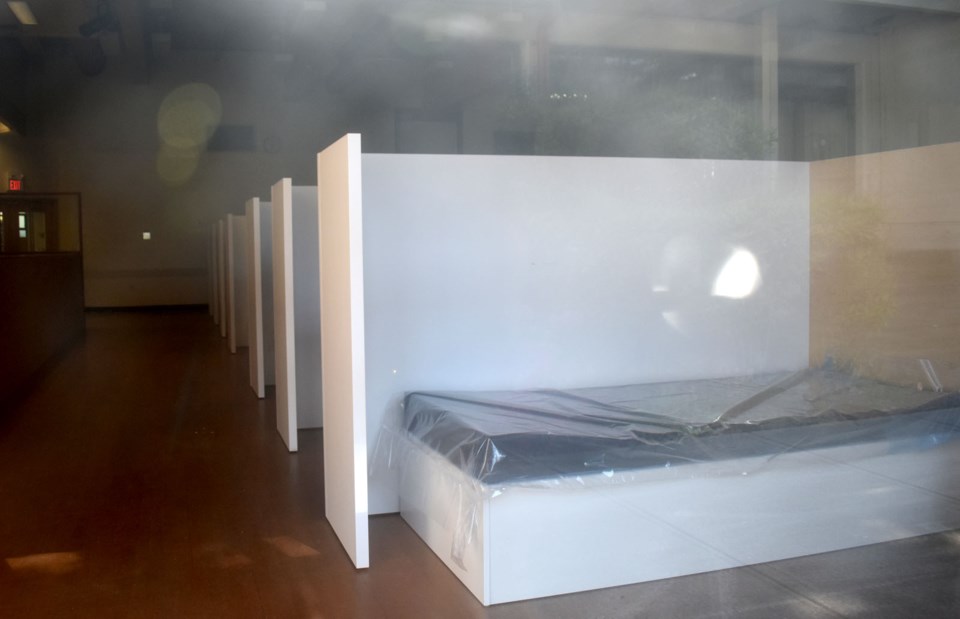A temporary homeless shelter, located in central Richmond in what will eventually become a new arts and cultural centre, has been extended to the end of March.
The former Minoru Place Activity Centre has been sheltering around 20 to 25 people per night after it was converted into an Emergency Response Centre (ERC) in mid-May and the original plan was for it to continue to the end of August.
The plans to renovate the building into an arts and cultural centre have been put on hold as it was deemed the ERC meets a current need, explained city spokesperson Clay Adams. The city will try to accommodate the arts community in other facilities if they need the space, he added, but given the current pandemic, there isn’t much opportunity or ability to hold classes or have other arts-related programming.
“We’ve pushed (the arts and cultural centre) back based on the reality of need,” Adams said.
The extension to the end of March is in anticipation of another wave of COVID-19 in the fall and winter.
The shelter is funded by BC Housing and is being run by Turning Point Recovery Society.
The city is providing the space for the ERC while Vancouver Coastal Health is responsible for health-related services and referrals.
Anyone at the ERC with COVID-19 symptoms is tested and sent to hotel rooms or the hospital while waiting for test results.
Part of the agreement when the ERC was set up was there would be no drug use on site or around the facility. Furthermore, there was to be no drug consumption room, unlike at the temporary modular housing building on Alderbridge Way, which has a safe consumption room for its residents.
However, the primary clientele at the ERC is not necessarily people with addictions, Adams said, rather people who need housing and there is no drug testing taking place of those seeking shelter.
Some people have moved from the homeless shelter into treatment or reconnected with families, Adams explained.
The maximum capacity of the ERC is 45 people.
Due to the COVID-19 pandemic, the Salvation Army shelter in Ironwood has reduced its capacity from 36 to 20 to ensure physical distancing.



